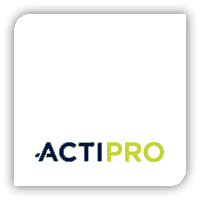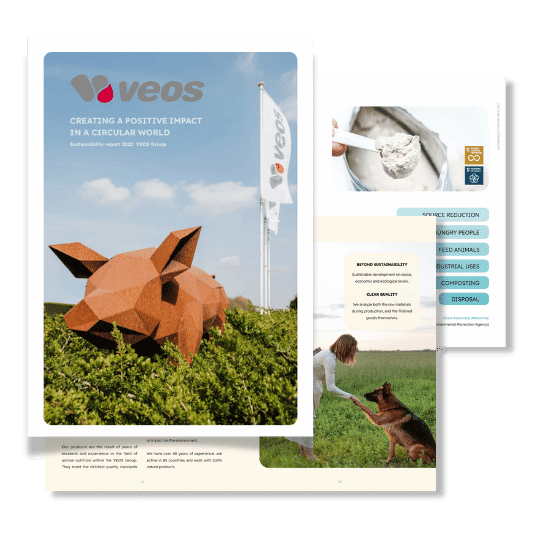Ethical Code Veos

It is Veos’ ambition to do business with integrity. What is important to us is not only the results, but also the way in which we obtain them.
The VEOS Group Code of Ethics is based on fundamental values, namely
the Veos company values
- Respect for people and the environment
- Modesty
- Entrepreneurial spirit
and the ETI Base Code, the model codex for labor practices based on the International Labor Organization (ILO) conventions:
- Free choice of employment
- Respect the freedom of association and the right to collective bargaining
- Safe and hygienic working conditions
- Ban on child labour
- Payment of minimum wages
- No excessive exceeding of working hours
- No discrimination
- Permanent employment
- No cruel or inhumane treatment
The Code of Ethics sets out the standards of conduct and guidelines that we adhere to in our daily dealings with each other, both internally and externally. The code also serves as a guideline for developing the sense of responsibility and involvement of the Group’s staff.
The adherence to these fundamental values by all employees contributes to the success of the employees and the company.
- goal
The purpose of the Code of Ethics is to clarify company policies regarding business ethics and conduct. The Code of Ethics does not always provide an answer to ethical questions, but contains the basic rules and guidelines that make it possible to find an answer. It’s up to us to understand the code, and use common sense to find answers to possible situations.
- Scope
Every employee must personally respect and act in accordance with the Code of Ethics.
If you have any questions about how to apply or interpret the code, please contact your responsible person.
Failure to adhere to the guidelines may result in personal liability and disciplinary action. Any violation is reported to the responsible person and/or management.
Each employee should receive a copy of the Code of Ethics. The digital version is available on the intranet.
- Code of Ethics
The most important basic principle can be found in the “United Nations Guiding Principles on Business and Human Rights” and the ETI CODE
We respect
– the Universal Declaration of Human Rights,
– the fundamental conventions of the International Labor Organization (ILO)
– the OECD (Economic Cooperation and Development Organization) principles on human rights, environmental protection and anti-corruption
– ETI code
The Veos group is fundamentally against child labor and forced labour. We follow the principles of the I.L.O. and we comply with all national child labor laws and regulations. It is prohibited at all times to allow children under the age of 16 to work. Due to our presence in many countries, we are aware of the responsibility we have. Wherever we operate, we are committed to acting as a responsible, honest company that respects people and the law.
Veos is committed to safeguarding working conditions and relationships based on respect and safety.
Wherever we are, we strive to act as a responsible honest company that respects people, animals and plants and the law.
Any gifts or gratuities offered may influence your independent opinion or judgment and thus affect your dealings with business partners.
The general principle is that any gift given to you or to a family member must be returned to Veos. In any event, you must not accept any gifts or gratuities that could interfere with your independent judgment in the performance of your duties. It is best to report the gifts or hospitality you receive to your supervisor.
Under no circumstances should you give gifts to managers or business partners that could interfere with the performance of your duties as a representative of Veos or place you in a delicate situation.
It is permitted to offer business gifts of reasonable value in accordance with local laws and customs, after notification to your responsible person.
Whatever country we operate in, we are firmly against any form of corruption by any body, public or private. We are against any form of compensation in favor of a third party that does not correspond to the actual service. Veos opposes any payment of bribes or any other illegal payment, directly or indirectly through an intermediary, to government officials, members of governments, or any other government officials, as well as to any private law entity.
By agents or intermediaries, we mean any third party you rely on to negotiate a partnership, government contract, or any other commercial relationship.
It is prohibited to pay any commission, rebate, consultancy fees or fees for services rendered, in the form of remittance of money or financial benefits, where such payments are intended to reward a member of government, an official or any public or private agent for the purpose of provoking a favorable decision on their part or obtaining any other undue advantage to Veos. Such payments should also be considered prohibited when made by an intermediary or third party adviser on behalf of Veos and at its request. Failure to comply with these rules exposes one to severe penalties, in addition to the legal proceedings that such acts may cause.
To ensure full compliance with applicable laws, you must specifically observe the following rules:
– It is absolutely forbidden to give or receive bribes, as well as making or receiving illegal payments.
– Any request or offer of bribery or unauthorized payment must be expressly rejected and immediately reported to management
– No gift or advantage should be offered to government officials or agents, public or private, for the purpose of influencing an administrative decision, attempting to obtain or retain contracts or obtain commercial relationships, or obtain an unfair proposition
– In certain limited circumstances, reasonable gifts of moderate value may be made to the third party if they comply with local law and custom. You must inform your supervisor of this. It goes without saying what may be considered “reasonable” in one context, may be considered “unreasonable” in another context.
– In the event that you use an agent, intermediary or external consultants, the remuneration for their services must be reasonable and commensurate with the task assigned. These fees must be identifiable, in accordance with market standards, properly accounted for and offset by actual services rendered, in accordance with Veos permitted spending practices and accounting policies. An employee will not be punished for the consequences Veos could have if he refuses to pay a bribe.
Compliance with the above guidelines is imperative and an integral part of the employee’s commitment to the company’s ethical rules.
Veos distances itself from supporting political candidates in hopes of gaining corporate benefits. We apply the neutrality principle.
You may occasionally have information about the group that must remain confidential to the extent that disclosure or premature disclosure could harm the group. This information, for example, may relate to products, studies, technical know-how, industrial commercial projects, financial data or even future plans of a strategic, tactical, budgetary or other nature. Each employee must ensure that such information is not disseminated, directly or indirectly, outside the Company or communicated to any person employed within the Company who is not authorized to receive it. You may also receive sensitive information from customers, suppliers or other stakeholders. It is up to you to maintain the confidentiality of such information in order to earn their trust and to include in the contracts with these partners clauses guaranteeing the adequate protection of the confidential data exchanged, as well as its non-disclosure without authorization.
We are in favor of fair commercial competition exercised by all market players under competition law. Veos’ competitive advantage must come from the superior quality of our products, not from unfair trade practices. Failure to comply with these rules can have serious consequences for the group, namely
– Severe financial sanctions
– Significant legal costs
– The nullity of commercial contracts that are contrary to the rules of competition law and the payment of compensation for the injured parties
– Criminal sanctions
– Bad publicity for veos
Employees are required to respect and apply competition laws. While competition laws are often complex and govern a wide variety of matters, the general principle is that such laws prohibit agreements with competitors and customers that have the object or effect of restricting competition in the marketplace. These rules are designed to protect customers and consumers from selling prices or conditions of sale for products or services that are not the result of fair competition.
Each employee is responsible, within the scope of their duties, for the proper use and protection of any tangible or intangible assets and resources of Veos. These include in particular industrial facilities, equipment, financial resources, intellectual property, trade secrets, patents and trademarks. These assets and resources must be used in accordance with the needs of the business. It must not be used for any purpose other than that of the Company, except where its use is formally authorized under internal procedures.
Finally, every employee must protect the company’s assets from any damage, alteration, fraud, loss or theft.
We build honest relationships with our industrial or commercial relationships, especially our suppliers, by relying on fair contract terms and by seeking the best possible balance between improving our results and building lasting relationships.
It is our responsibility to inform you of the countries to which international trading activities are subject to controls or embargo, and to obtain any necessary authorizations or permits, if applicable.
Veos promotes open, regular, accurate and honest communication with its shareholders and with representatives of financial institutions. Respecting the facts means objectivity, intellectual honesty, free from opinions and prejudices, daring to recognize that there is a problem and to admit the reality of the impact, even if the solution does not seem to be there.
It is essential that our financial reporting is accurate, accurate and fair to ensure good governance of the company: our financial statements should be too. Balance sheets, accounts and financial statements must accurately reflect the operations performed by Veos. They must comply with applicable legal requirements, generally accepted accounting principles, and the internal control system implemented by Veos.
We are constantly looking for areas where progress can be made in the areas of social affairs, health and safety at work. When necessary, we change the infrastructure to improve safety and working conditions and the living environment.
All employees have the right to a safe and healthy working environment and are invited to join their efforts with those of Veos. Our ambition is to resolutely improve the working conditions of our employees in terms of health and safety. Every employee must be able to perform his work in accordance with the health and safety rules applicable to his workplaces and must participate in improving his conditions.
We support the development of diversity and human wealth in Veos . The diversity of employees and cultures represented within Veos is a huge asset. As part of its fundamental orientations, Veos is determined to be able to offer its employees equal opportunities in terms of recognition, individual advancement and career paths, regardless of their origin, gender or their beliefs. Veos does not tolerate any form of discrimination or harassment based on, among other things, race, gender, age, religion or political or trade union views.
We are committed to acting as a responsible company, respecting people and the law.
Veos intends to respect the laws governing the protection of the privacy of its employees. Veos thus provides its employees with access to their personal data, in accordance with applicable laws and regulations, so that they can ensure that this information is accurate and accurate. We do not share employee data with third parties, except where required and permitted by applicable laws and regulations.
- Reporting
Employees must report any violation of the Code of Ethics to the COO in writing or by email.
An employee must provide serious evidence to support their claim that the reported incident is genuine and provide all supporting documentation of their reported claim.
All reported irregularities and the identity of the informant will be treated in the strictest confidence, in accordance with applicable Laws. After taking the corrective action, they are followed up via verification.



